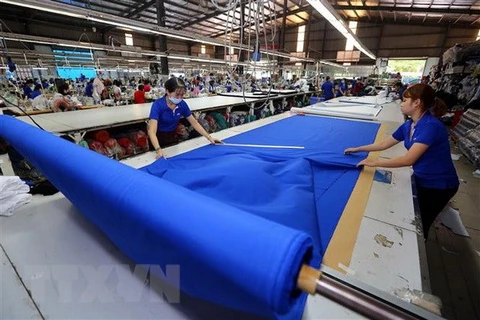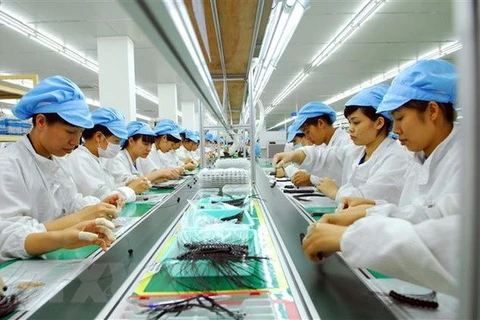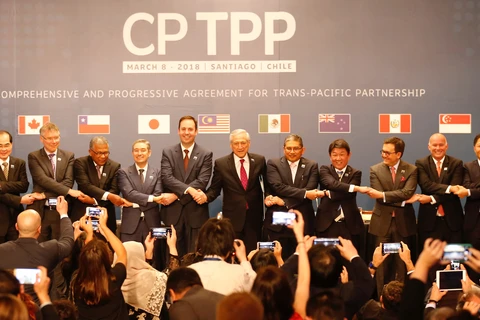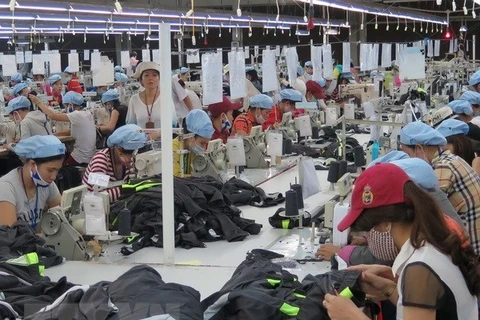Hanoi (VNA) – The Comprehensive and Progressive Agreement for Trans-Pacific Partnership (CPTPP) has recently taken effect in Vietnam, which will bring about both opportunities and challenges for many fields, including agriculture.
Tran Van Cong, deputy head of the Agro Processing and Market Development Authority, said that Vietnamese firms will be able to expand their export markets to some of the world’s largest, as well as boost exports of high-value processed produce, making it easier to join the global supply chain.
According to him, processed fruits and vegetables, and dairy products will face intense competition. However, the sector also has some advantages in low-cost manufacturing and low-paid workforce, along with an abundance of supply.
In order to fully reap the benefits of the CPTPP and mitigate the impacts of possible challenges, he said the agricultural sector must step up restructuring by improving added value and sustainability, and limiting reliance on imported materials.
Focus must be given to national, provincial, and local-level products in combination with geographical indication and the “One Commune, One Product” programme, he said.
Meanwhile, the wood sector will benefit from preferential tax as import tax for Vietnamese wooden furniture into Canada, Mexico, and Peru has been high in the past.
Huynh Van Hanh, Vice Chairman of the Ho Chi Minh City Handicraft and Wood Industry Association, said incentives from the CPTPP will help the sector reduce prices and improve its competitiveness.
Vice President of the Vietnam Timber and Forest Product Association Nguyen Ton Quyen said that apart from wooden furniture, taxes for wood processing equipment will also be cut to zero, raising hopes for wood processors.
He suggested that domestic firms improve corporate governance, technical process, and marketing.–VNA
Tran Van Cong, deputy head of the Agro Processing and Market Development Authority, said that Vietnamese firms will be able to expand their export markets to some of the world’s largest, as well as boost exports of high-value processed produce, making it easier to join the global supply chain.
According to him, processed fruits and vegetables, and dairy products will face intense competition. However, the sector also has some advantages in low-cost manufacturing and low-paid workforce, along with an abundance of supply.
In order to fully reap the benefits of the CPTPP and mitigate the impacts of possible challenges, he said the agricultural sector must step up restructuring by improving added value and sustainability, and limiting reliance on imported materials.
Focus must be given to national, provincial, and local-level products in combination with geographical indication and the “One Commune, One Product” programme, he said.
Meanwhile, the wood sector will benefit from preferential tax as import tax for Vietnamese wooden furniture into Canada, Mexico, and Peru has been high in the past.
Huynh Van Hanh, Vice Chairman of the Ho Chi Minh City Handicraft and Wood Industry Association, said incentives from the CPTPP will help the sector reduce prices and improve its competitiveness.
Vice President of the Vietnam Timber and Forest Product Association Nguyen Ton Quyen said that apart from wooden furniture, taxes for wood processing equipment will also be cut to zero, raising hopes for wood processors.
He suggested that domestic firms improve corporate governance, technical process, and marketing.–VNA
VNA
























